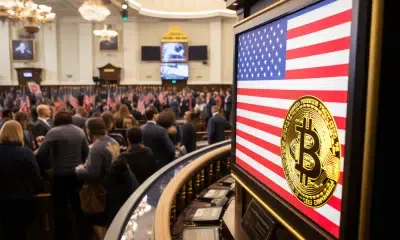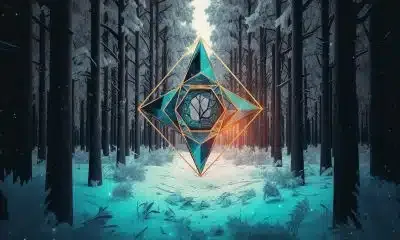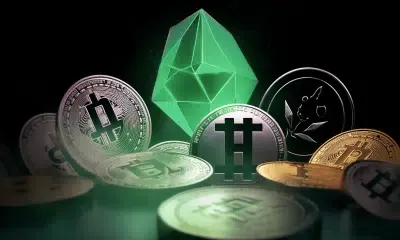
Getting Solana Without Paying: Spotting Real Deals and Dodging Traps in the SOL Universe
Plenty of crypto enthusiasts are keen on grabbing Solana (SOL) without actually buying it. But how to get free Solana, and which methods are actually worth your time? Within the Solana scene, things like airdrops, staking payouts, learning rewards, and grants all dangle the carrot of “free” SOL. You’ve got to be pretty sharp, though, to tell a genuine opportunity from a cleverly disguised problem, as it’s often a tricky distinction. Let’s dig into the real ways to get SOL, the common dangers, and what all this means for Solana’s overall financial health.
Actual Ways to Get Solana Without Buying It
Sure, “free” nearly always has some strings attached, but there are ways you can earn SOL or similar tokens by actively participating, showing some skill, or being an early bird in the Solana environment.
1. Airdrops: Are They Fueling Solana’s Expansion?
Handing out tokens through airdrops is a go-to move for Solana projects, both new and old. Their goal is to build up user groups, thank those who got in early, and encourage more people to use what they’ve built. These giveaways might be for things you’ve done on a platform in the past, or they could “snapshot” who holds certain tokens or NFTs at a point in time and reward them. The crypto world has seen a lot of buzz from airdrops recently. Still, the tokens you receive could be fantastic or completely useless—it’s quite a gamble. Plus, projects are getting pickier about who qualifies, trying to attract real users, not just those hunting for quick grabs.
2. Staking Rewards: Earn by Helping Keep the Network Safe
If you’re already holding SOL, staking is a clear route to accumulate more. By entrusting your SOL to network operators (validators), you bolster Solana’s security. For this, you receive a portion of the newly created SOL. While this does mean you need SOL to begin, it then offers a fairly dependable flow of more SOL. The yearly return (APY) isn’t fixed; it shifts with network conditions and how well your chosen validator does its job.
3. Learn-to-Earn (L2E) Programs: Crypto Rewards for Expanding Your Knowledge
A number of platforms and crypto exchanges encourage you to learn about Solana or specific ventures by giving out SOL or other digital coins when you finish their lessons and quizzes. These L2E efforts are designed to make it simpler for beginners to start and to help create a more knowledgeable community. The payouts are usually small, but they represent a very low-danger way to step into the Solana sphere.
4. Grants and Bounties: Supporting Solana’s Development and Security
The Solana Foundation, along with other projects connected to it, frequently gives out grants. These are for developers, researchers, and community organizers who are pushing Solana forward. This funding, typically in SOL or USDC, goes towards projects creating shared resources, new developer tools, educational materials, or groundbreaking applications.
Finding security flaws also offers a chance for good money. If you’re a security pro and spot a weakness in Solana’s core system or in a specific project, reporting it responsibly can bring in a hefty SOL reward, and you’ll be making Solana safer for everyone else too.
The Dangers of “Free”: Uncovering Scams and What They Really Cost
The sniff of free SOL naturally pulls in dishonest people, so it’s absolutely vital to tread very carefully. Because there are so many clever scams out there, you really have to be on your guard.
Common Scammer Tactics:
* Phony Giveaways and Airdrops: Crooks cook up very believable fake versions of official project websites or social media pages. They use these to promote non-existent airdrops that actually send you to phishing sites built to empty your crypto wallet.
* Harmful Smart Contracts & NFTs: You might suddenly find strange NFTs in your wallet. Some carry deceptive links or try to trick you into approving a transaction that will let thieves take your crypto.
* Impostors: Deceivers will often pretend to be project leaders, support team members, or well-known crypto figures. They do this to earn your trust before asking for money or your confidential details.
Red Flags to Watch Out For:
* Offers That Seem Too Good to Be Real: If anyone promises you massive, guaranteed profits or an outsized pile of free SOL for hardly any work, it’s almost certainly a con.
* Demands for Your Private Keys or Seed Phrase: Authentic projects or individuals will never request this critical information. Keep it to yourself.
* Being Pressured to Act Fast: Scammers frequently invent a fake rush, hoping you won’t have a chance to think things through properly.
* Odd Links and Unofficial Websites: Always meticulously check website addresses and confirm who is actually communicating with you; ensure they are the official source.
Besides the straightforward cons, remember that “free” SOL often comes with other, less obvious “prices.” This includes the hours you might pour into crypto faucets or learn-to-earn activities. Sometimes, you’ll need to hand over personal information for “Know Your Customer” identity checks. And never lose sight of the fact that crypto values can jump up or crash down unpredictably.
How SOL Distribution Shakes Up the Economy and Ecosystem
The way SOL gets into people’s hands—whether it’s from staking, airdrops, or grants—has a real effect on the coin’s underlying financial design and how much people think it’s worth.
- Coin Economics and Inflation: Solana is designed to gradually increase its SOL supply over time, with most new SOL going out as staking rewards. This system motivates people to help run the network, but it also means a constant flow of new SOL into the market. As a counterbalance, half of every transaction fee is permanently removed from circulation, which helps to control the supply.
- Market Mood and Trading Activity: Large airdrops can whip up some temporary excitement in the market and get more people trading. However, if those who receive the free coins aren’t given a good reason to hold onto them for a while, they might just sell them off quickly, potentially driving the price down.
- Attracting Users Versus Fostering Real Involvement: Giveaways can certainly bring new people in, but the real test is turning these initial explorers into individuals who stay, engage deeply, and genuinely contribute to the Solana community’s growth. Increasingly, projects are crafting their token distribution to reward consistent, meaningful activity rather than just brief, superficial interactions.
The Changing World of “Free Solana”
Methods for giving out and getting hold of SOL are always in flux. New technologies, like AI-powered data analysis, are being tested to make airdrop targeting sharper and to better stop cheaters who try to game the system with many fake identities. What the community wants is also changing, with more people calling for distribution systems that are fairer, more open, and that truly recognize valuable contributions.
Government agencies worldwide are paying more attention to how tokens are distributed. Both the projects creating tokens and the people receiving them must stay informed about new and changing laws related to whether a token counts as a security, rules for preventing money laundering (AML) and verifying customer identity (KYC), and how crypto earnings are taxed.
In Closing: Be Smart in a World Full of Chances
Even with Solana offering several ways to obtain SOL without directly purchasing it, “free” is very rarely entirely without cost. You’ve got to consider if the time you’ll spend, the effort you’ll put in, and the potential dangers are truly worth what you might gain. Genuine avenues, like staking SOL, participating in airdrops from trustworthy projects you’ve thoroughly researched, securing grants, or engaging in learn-to-earn programs, can indeed offer benefits and draw you deeper into the Solana network.
But be warned: this field is also riddled with scams and deals that aren’t what they seem. Maintaining a bit of suspicion, doing your homework thoroughly, and sticking to good security habits are absolutely essential. As Solana keeps developing, the ways tokens are shared will probably become more advanced, aiming to cultivate lasting growth and authentic community involvement rather than just short-lived speculative excitement. For everyone involved, the most important thing is to move through this constantly shifting environment with careful thought and open eyes.




